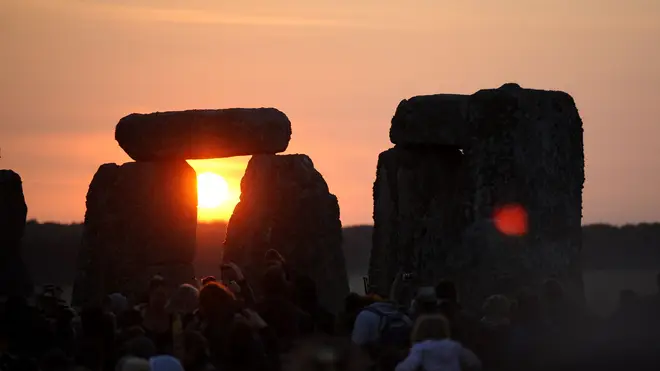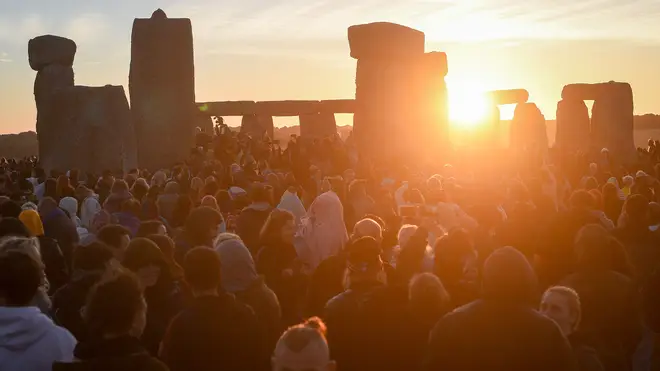
Paul Brand 10am - 12pm
17 June 2021, 19:15

The summer solstice is just days away, so find out everything you need to know about the celebration here.
The longest day of the year - also known as Midsummer - will be on Monday 21 June, and the UK is expected to get almost 17 hours of daylight to mark the occasion.
However, things may be a little different this year, as restrictions are still in place for the big day.
Read more: 'Freedom Day' officially delayed as MPs approve extension of Covid measures
The solstice marks the beginning of astronomical summer in the Northern Hemisphere.
It translates from the latin of sol and sistere, meaning sun and standing still, because the solstice gives the illusion of the sun standing still.
During this time, the sun is at the northernmost point from the Earth's equator.
The solstice holds significance across a number of cultures, but was particularly important during the Neolithic era, with the focus turning to agriculture.
Farmers relied on the solstice as guidance for when to plant and harvest crops.
As one of the most famous Neolithic monuments, it is believed that Stonehenge was built for the purpose of the solstices, and that it acted as a solar calendar at the time.

Thousands of people usually flock to Stonehenge in Wiltshire to watch the sun rise behind the Heel Stone.
It is a time to enjoy festivals or carry out rituals for some.
Unfortunately, due to the delay of Freedom Day until 19 July, solstice celebrations at Stonehenge have been cancelled this year.
Some small, pre-booked groups from the pagan and druid community are able to visit on the days around the solstice, but that is it.
The sunrise and sunset will instead be streamed across the English Heritage's social media channels.